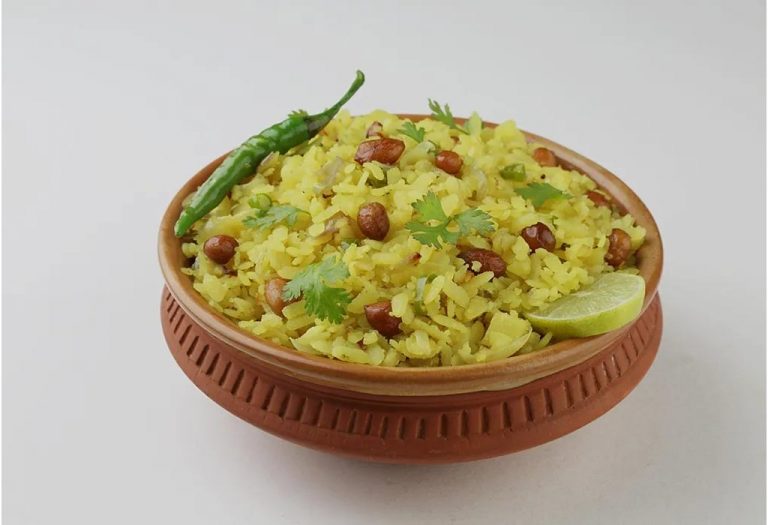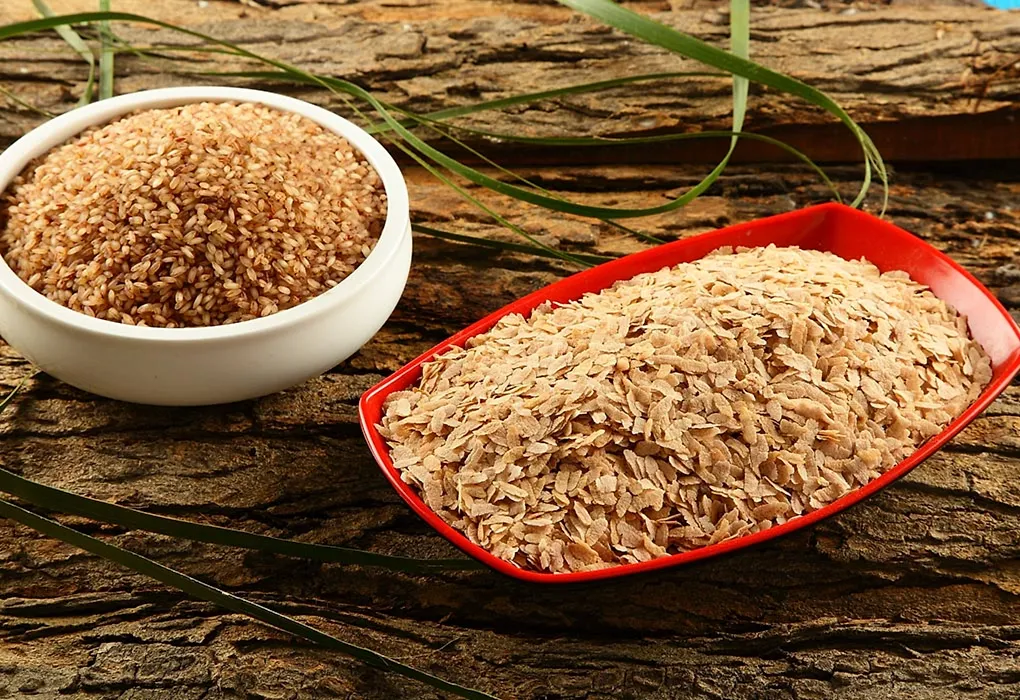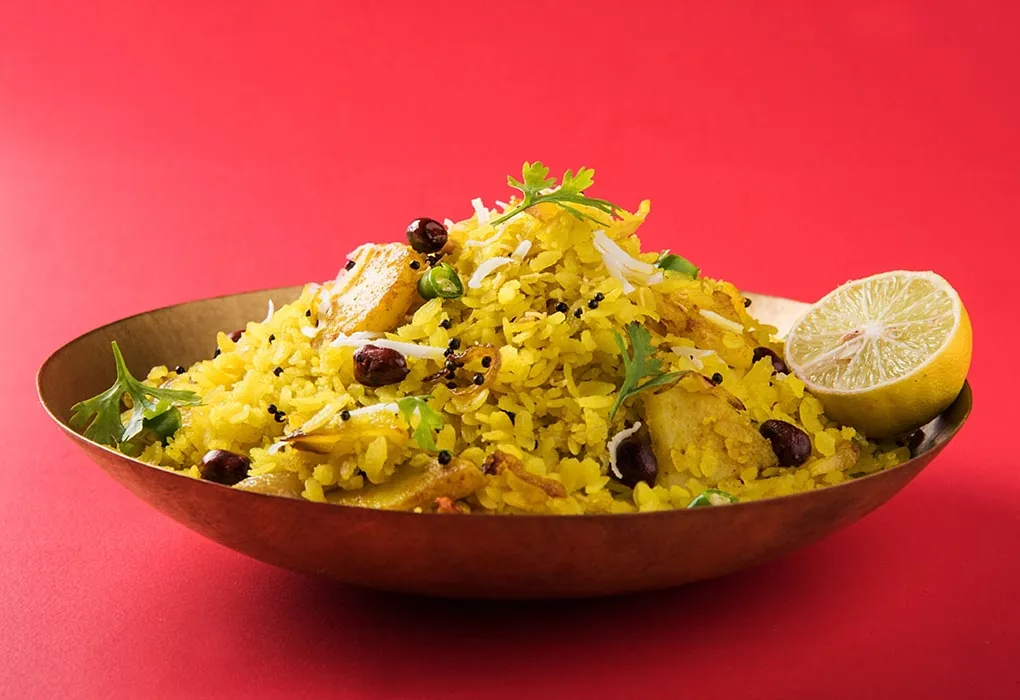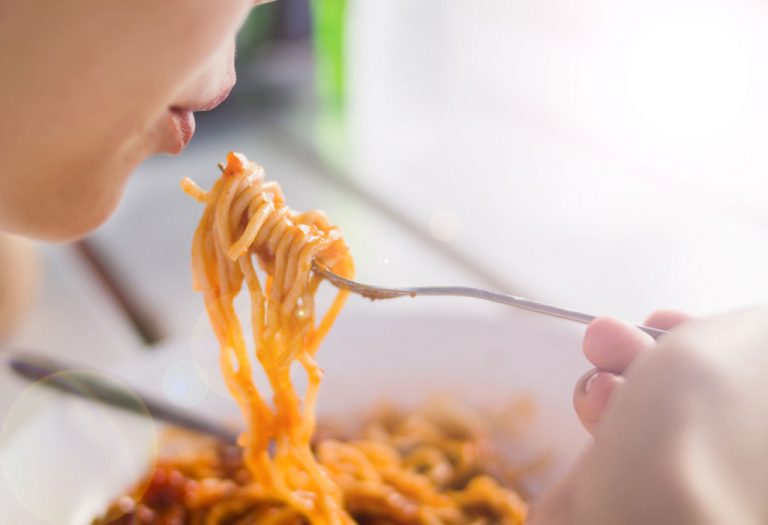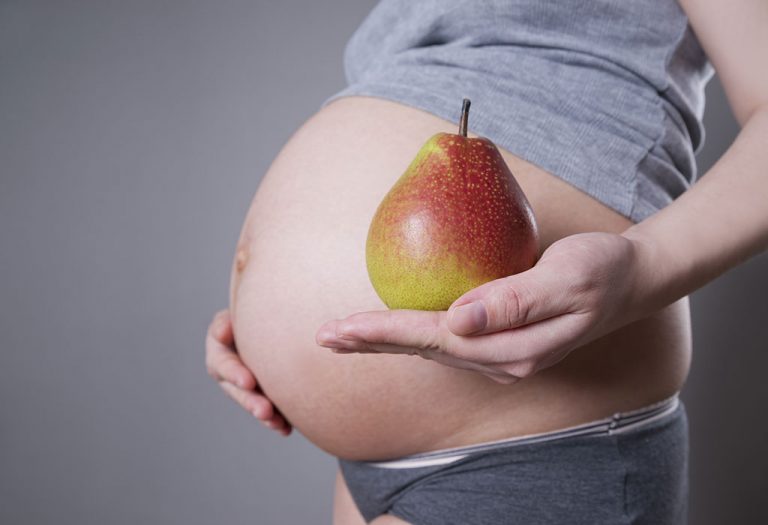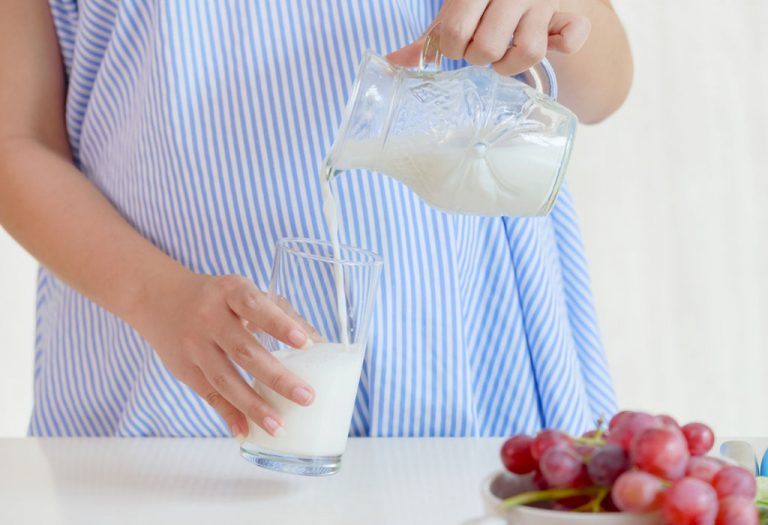Poha (Flattened Rice Flakes) in Pregnancy – Benefits and Recipes

Poha during pregnancy is a healthy and energy-boosting food choice for expecting moms. Beaten rice or flattened rice flakes make Poha a trendy breakfast and snack dish all over India. When flattened rice is soaked in water, it swells and softens and can be used to make many such Indian dishes. Poha is a powerhouse of essential nutrients, including iron, carbohydrates, vitamins, and minerals, making it an ideal choice for expectant mothers looking to maintain a balanced and nourishing diet (3). Read on to learn more about what Poha is made of and how it is beneficial during pregnancy.
What Is Poha Made Of?
Poha is made of beaten rice or flattened rice. Raw rice is soaked in water, roasted, hulled to separate the husks, and then passed through rollers to make it flat. It is then dried to obtain flattened rice flakes.
Types of Poha Available
There are various types of Poha available, and some of these include:
1. White Poha
White Poha comes from white rice. The bran or husk of the white rice is completely removed in the process of making white Poha. It is easily digested and is a rich source of carbohydrates.
2. Red Poha
Red poha is made from red rice grains and is rich in iron and antioxidants. It tastes nutty and takes longer to cook than the white poha.
3. Brown Poha
Brown poha comes from brown rice and contains potassium, iron and dietary fibre.
Is Poha Safe During Pregnancy?
Have you been wondering whether it is safe to eat poha during pregnancy? The answer is yes! Poha is very healthy and safe for pregnant women. It is also digested quickly, making it ideal for women who suffer from nausea and vomiting during pregnancy.
Which Type of Rice Flakes Is Healthier for Pregnant Women?
Brown and Red poha are healthier than white poha even though these varieties have longer cooking times. This is because brown and red poha contain more dietary fibre than white poha, which has the husk and germ layer removed. Brown and red poha are also richer in nutrients like iron and antioxidants than white poha. The nutritious red poha also contains anthocyanin, a flavonoid with essential minerals like zinc, iron, and manganese.
Pregnant women can gain several health benefits by consuming poha. Let’s take a look at some of them.
Benefits of Eating Poha in Pregnancy
The answer is yes if you are mulling over whether we can eat poha during pregnancy! Poha is very beneficial for pregnant women. Some of these benefits are:
1. Regulates Blood Sugar
Poha is high in dietary fibre and has a low glycemic index. It can maintain blood sugar levels by releasing glucose gradually into the blood (1).
2. Suitable for the Intestines
Poha is a probiotic. As it is soaked during the preparation process, it ferments and retains the good bacteria that are beneficial for our intestines and digestion.
3. Excellent Source of Carbohydrates
Poha contains 77% carbohydrates. Thus, it is a great breakfast choice as carbohydrates give the body energy to carry out daily activities (4).
4. Digests Quickly
Poha is easily digested, so it does not cause acidity. Hence, it is perfect for women who suffer from acidity or heartburn during pregnancy.
5. Rich in Iron
Poha is a good source of essential minerals like iron, zinc, and manganese, which are necessary for the healthy development of the unborn baby (5).
6. Low in Calories
Although full of nutrients, poha is low in calories and can prevent unnecessary weight gain.
7. Prevents Anaemia
The iron present in the poha helps in preventing anaemia in pregnant women.
8. Good for People With a Gluten Allergy
If you are allergic to gluten or are on a gluten-free diet during pregnancy, poha is a good option as it is very low in gluten content.
Why Is Poha Considered a Healthy Breakfast Food and Snack in Pregnancy?
Poha is considered a healthy breakfast food and snack during pregnancy because:
1. Availability
Poha is easily available in all grocery stores.
2. Affordability
Poha is inexpensive and can be purchased at a very reasonable price.
3. Simple to make
Poha dishes are extremely easy to make, and even people who are not great cooks can prepare them.
4. Versatility
You can make the poha dish more nutritious by adding vegetables, soya, boiled eggs, or nuts. This versatility is why it is a very popular dish in India.
5. Variety of Dishes
Numerous varieties of poha dishes can be prepared. So, poha can never get monotonous.
How to Choose the Best Poha?
When you are pregnant, it is best to select quality produce. Therefore, you should choose red or brown poha from organic rice. Ensure that the poha is in a transparent package so that you can check the quality of the poha inside. Poha of good quality retains the taste and aroma for a longer duration of time.
Easy Poha Recipes for Pregnant Women
Here are some healthy and nutritious poha recipes that you can try during your pregnancy:
1. Dahi Poha
This recipe is very simple to prepare if you are really hungry and need a quick snack.
Ingredients:
- Poha – 1 cup
- Curd – 1 cup
- Grated Ginger – 1/2 tsp
- Green chilli paste – 1/4th tsp
- Salt to taste
How to Prepare
Soak the poha for 15 minutes in some water until all the flakes are tender. Mix everything and let it sit for 5 minutes. Serve it at room temperature.
2. Lemon Poha
This tangy dish can be had for breakfast or snack time.
Ingredients:
- Poha – 1 cup
- Cubed pieces of boiled potato – 1 cup
- Mustard seeds – 1 tsp
- Urad dal – 1 tsp
- Cumin seeds – 1 tsp
- Juice of 1 lemon
- Green chilli – 1, finely chopped
- Turmeric – 1 tsp
- Salt to taste
- Water – as require
- Vegetable oil – 1 tbsp
How to Prepare
Soak the poha for 15 minutes until it is soft. Drain and keep aside. Heat oil in a pan and add the mustard seeds, urad dal and cumin seeds to it. Add green chillies and potatoes and saute until the potatoes turn golden brown. Add poha, turmeric, and salt to taste. Mix it well. Turn off the heat and add the juice of 1 lemon and mix well. Serve hot.
3. Sweet Poha
This delicious dish makes a healthy dessert.
Ingredients:
- Soaked poha – 1 cup
- Banana – 1, mashed
- Roughly powdered roasted peanuts – 1 to 2 tbsp
- Honey – 1 to 2 tsp
- Nuts like cashews, pistachios or almonds as preferred
How to Prepare
Mix all the ingredients with the soaked poha and let it sit for 10 minutes, Serve at room temperature.
FAQs
1. Can I consume poha if I have gluten sensitivity or intolerance?
Yes, poha is naturally gluten-free, making it a safe option for pregnant women with gluten sensitivity or intolerance. It can be a valuable addition to their diet, providing essential nutrients without triggering any adverse reactions associated with gluten consumption.
2. Is it advisable to eat poha as a late-night snack during pregnancy?
While poha can be a light and nutritious snack option, avoiding heavy or spicy foods close to bedtime is generally recommended to prevent indigestion and discomfort. Opting for a small portion of poha with mild seasoning can be a better choice than heavier snacks, but listening to your body and avoiding overeating is essential.
3. Are there any specific benefits of poha for fetal development?
Yes, poha contains folate, a crucial nutrient for fetal development, particularly in the early stages of pregnancy. Folate plays a vital role in preventing neural tube defects and supporting the healthy growth of the baby’s brain and spinal cord (2). Including poha in your diet can contribute to meeting the increased folate requirements during pregnancy.
Poha for pregnancy is a nourishing and versatile food choice, providing essential nutrients and energy to support maternal health and fetal development throughout this crucial stage of life. Like anything else, poha should be consumed in moderation. Feel free to consult your obstetrician before adding anything new to your diet.
References/Resources:
1. Jose. N. M; Poha consumption and Glycemic control, An experimental Study; International Journal of Nursing Education and Research; https://ijneronline.com/HTMLPaper.aspx
2. Ami. N, Bernstein. M, Boucher. F, et al.; Folate and neural tube defects: The role of supplements and food fortification; PubMed Central; https://www.ncbi.nlm.nih.gov/pmc/articles/PMC4933077/
3. THICK POHA; U.S. DEPARTMENT OF AGRICULTURE; https://fdc.nal.usda.gov/fdc-app.html#/food-details/472148/nutrients
4. Jéquier. E; Carbohydrates as a source of energy; PubMed; https://pubmed.ncbi.nlm.nih.gov/8116550/
5. Farias. P. M, Marcelino. G, Santana. L. F, et al.; Minerals in Pregnancy and Their Impact on Child Growth and Development; PubMed Central; https://www.ncbi.nlm.nih.gov/pmc/articles/PMC7730771/
Also Read:
Eggs when Pregnant
Sabudana during Pregnancy
Eating Corn Flakes in Pregnancy
Consuming Bread while Pregnancy
Was This Article Helpful?
Parenting is a huge responsibility, for you as a caregiver, but also for us as a parenting content platform. We understand that and take our responsibility of creating credible content seriously. FirstCry Parenting articles are written and published only after extensive research using factually sound references to deliver quality content that is accurate, validated by experts, and completely reliable. To understand how we go about creating content that is credible, read our editorial policy here.






